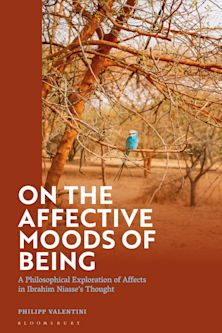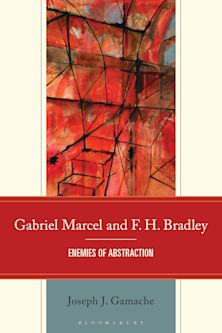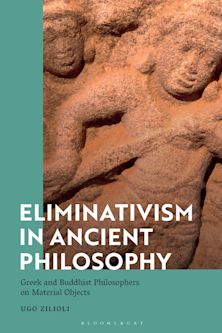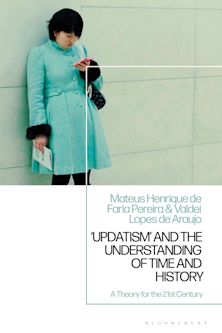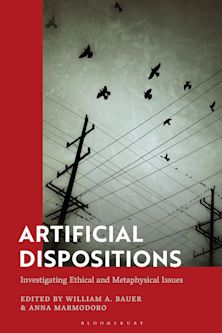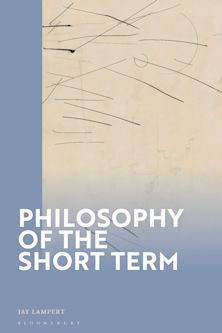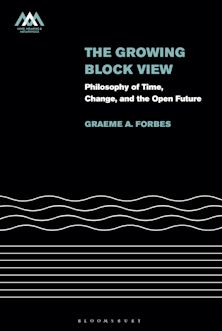- Home
- ACADEMIC
- Philosophy
- Metaphysics
- Presentism
Presentism
Essential Readings
Ernâni Magalhães (Anthology Editor) , Nathan L. Oaklander (Anthology Editor) , St Augustine (Contributor) , John Bigelow (Contributor) , Craig Bourne (Contributor) , William Lane Craig (Contributor) , Thomas Crisp (Contributor) , Matthew Davidson (Contributor) , Rafael De Clercq (Contributor) , M Oreste Fiocco (Contributor) , Mark Hinchliff (Contributor) , Simon Keller (Contributor) , J M. E. McTaggart (Contributor) , Trenton Merricks (Contributor) , Ulrich Meyer (Contributor) , Arthur Prior (Contributor) , Hilary Putnam (Contributor) , Dean Zimmerman (Contributor)
Presentism
Essential Readings
Ernâni Magalhães (Anthology Editor) , Nathan L. Oaklander (Anthology Editor) , St Augustine (Contributor) , John Bigelow (Contributor) , Craig Bourne (Contributor) , William Lane Craig (Contributor) , Thomas Crisp (Contributor) , Matthew Davidson (Contributor) , Rafael De Clercq (Contributor) , M Oreste Fiocco (Contributor) , Mark Hinchliff (Contributor) , Simon Keller (Contributor) , J M. E. McTaggart (Contributor) , Trenton Merricks (Contributor) , Ulrich Meyer (Contributor) , Arthur Prior (Contributor) , Hilary Putnam (Contributor) , Dean Zimmerman (Contributor)
This product is usually dispatched within 1 week
- Delivery and returns info
-
Free US delivery on orders $35 or over
You must sign in to add this item to your wishlist. Please sign in or create an account
Description
There is no time like the present. Is it also true that there is no time but the present? According to presentism, the present time is special in the most fundamental sense because all of reality is included in it. What is past is no longer; what is future is yet to be. This philosophy of time, with roots as far back as Saint Augustine and beyond, is the focus of vigorous and widespread discussion in contemporary philosophy.
Presentism: Essential Readings brings together for the first time the seminal works by both presentists and their opponents. Works by Augustine, McTaggart, Prior, Craig and others, address a wide array of issues concerning presentism. How can time pass if everything is present? Is there no future to come to the present; nor a past to receive the present? How can there be truths about the past? Generally a statement is true because of events in reality. But if presentism is correct, then the past would seem to lack a basis in reality. If only the present is real, how can things last? To persist seems to require that something exist at more than one time, but presentism holds that there is only one time: the present.
The collected essays on presentism address these and other aspects of the debate-a debate that is just beginning. With explanatory introductions written by the editors, Presentism: Essential Essays will fascinate and stretch the minds of both scholars and novices alike.
Table of Contents
Part 2 Part One. Presentism and Temporal Becoming
Chapter 3 Introduction. Presentism and Temporal Becoming
Chapter 4 Chapter One. What is Time?
Chapter 5 Chapter Two. The Unreality of Time
Chapter 6 Chapter Three. Changes in Events and Changes in Things
Chapter 7 Chapter Four. Is Presentness a Property?
Chapter 8 Chapter Five. Presentism: A Critique
Part 9 Part Two. Defining Presentism: The Triviality Objection
Chapter 10 Introduction. Defining Presentism: The Triviality Objection
Chapter 11 Chapter Six. The Presentist's Dilemma
Chapter 12 Chapter Seven. On Presentism and Triviality
Part 13 Part Three. Overviews of Presentism
Chapter 14 Introduction. Overviews of Presentism
Chapter 15 Chapter Eight. Presentism and Properties
Chapter 16 Chapter Nine. A Theory of Presentism
Chapter 17 Chapter Ten. A Defense of Transient Presentism
Part 18 Part Four. The Case Against Presentism
Chapter 19 Section One. Presentism and Inter-Temporal Relations
Chapter 20 Introduction. Presentism and Inter-Temporal Relations
Chapter 21 Chapter Eleven. Presentism and the Non-Present
Chapter 22 Chapter Twelve. Presentism and the Problem of Cross-Time Relations
Chapter 23 Section Two. Presentism and Relativity
Chapter 24 Introduction. Presentism and Relativity
Chapter 25 Chapter Thirteen. Time and Physical Geometry
Chapter 26 Chapter Fourteen. A Defense of Presentism in a Relativistic Setting
Chapter 27 Section Three. Presentism and Truthmaking
Chapter 28 Introduction. Presentism and Truthmaking
Chapter 29 Chapter Fifteen. Presentism and Truthmaking
Chapter 30 Chapter Sixteen. Presentism and the Grounding Objection
Part 31 Part Five. Presentism and Persistance
Chapter 32 Introduction. Presentism and Persistence
Chapter 33 Chapter Seventeen. Temporary Intrinsics and Presentism
Chapter 34 Chapter Eighteen. On the Incompatibility of Enduring and Perduring Entities
Product details
| Published | Oct 28 2010 |
|---|---|
| Format | Hardback |
| Edition | 1st |
| Extent | 348 |
| ISBN | 9780739145005 |
| Imprint | Lexington Books |
| Dimensions | 10 x 6 inches |
| Publisher | Bloomsbury Publishing |
About the contributors
Reviews
-
Much has been written on presentism in the last two decades, but these writings are largely scattered throughout the philosophical journals. This volume collects together both classic and contemporary papers on presentism. It is organized in a dialectically satisfying way such that the reader is guided through both the motivations for adopting presentism and the objections facing it. Each section has a helpful introduction that identifies and clarifies the main issues to be tackled by the following papers, and raises helpful questions to steer the reader through them. There is a good balance between papers that defend and those that criticize presentism. Anyone interested in the philosophy of time, and presentism in particular, will find this a valuable resource.
Heather Dyke, University of Otago














